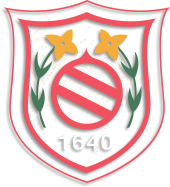Geography
Geography Whole School Long Term PlanOur ambitious and exiting geography curriculum has been specifically written and designed to meet the needs of our children, our community and our environment while taking into account the requirements of the National Curriculum and the Early Years Framework.
Why teach Geography?
A high-quality geography education should inspire in pupils a curiosity and fascination
about the world and its people that will remain with them for the rest of their lives.
Teaching should equip pupils with knowledge about diverse places, people, resources and natural and human environments, together with a deep understanding of the Earth’s key physical and human processes. As pupils progress, their growing knowledge about the world should help them to deepen their understanding of the interaction between physical and human processes, and of the formation and use of landscapes and environments.
Geographical knowledge, understanding and skills provide the frameworks and
approaches that explain how the Earth’s features at different scales are shaped,
interconnected and change over time.
Aims
The national curriculum for geography aims to ensure that all pupils:
- develop contextual knowledge of the location of globally significant places – both
terrestrial and marine – including their defining physical and human characteristics and
how these provide a geographical context for understanding the actions of processes - understand the processes that give rise to key physical and human geographical
features of the world, how these are interdependent and how they bring about spatial
variation and change over time are competent in the geographical skills needed to: - collect, analyse and communicate with a range of data gathered through
experiences of fieldwork that deepen their understanding of geographical
processes - interpret a range of sources of geographical information, including maps, diagrams,
globes, aerial photographs and Geographical Information Systems (GIS) - communicate geographical information in a variety of ways, including through
maps, numerical and quantitative skills and writing at length.
Although we make meaningful links to other curriculum areas, we believe that children should see geography as a subject in its own right. When planning our curriculum, we have thought about its distinctive character as a discipline and ensured that we have woven the concepts that are fundamental to geographical thinking into our curriculum. Skills needed to be a geographer are taught progressively. Concepts are built upon, learning is revisited and children’s locational knowledge is built on year on year (children complete three units over a year). Teachers are clear about what they need children to learn and how this builds on prior learning.
Understanding the World People, Culture and Communities and The Natural World
The themes, ideas and concepts covered form the basis for our Geography curriculum. Fundamental geographical understanding is developed through Mathematics and Understanding the World. Children will use language and drawing to describe a familiar route taken in real life or in a story. The children’s developing language skills will enable them to discuss position, routes and locations. Using simple maps and photos they will be able to suggest what they might find in a location or what it might be like there. This will support their ability to recognise some similarities and differences between life in this country and life in other countries. Children will develop an understanding some important processes and changes in the natural world around them, including the seasons.
Field work is a statutory part of the national curriculum and is undertaken on a regular basis. Our geography curriculum ensures children engage regularly with the outside world and develop skills in meaningful and current contexts. First hand experiences are really important for our children and fieldwork ensures are children are engaging with the world around them, managing risks, navigating real landscapes and gathering data for real purposes. Through our geography curriculum, we have thought about key themes that run through units. These include sustainability, connectivity, change and community. These are revisited over time and add to the cohesiveness of our curriculum and support our children with being confident, capable and caring citizens.


